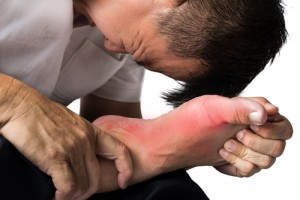Learn more about Reactive Arthritis or formerly known as Reiter’s Syndrome
Reactive arthritis, formerly called Reiter’s syndrome, is a type of arthritis that occurs as a ‘reaction’ to a bacterial infection in another part of your body., particularly a bowel or genital tract infection.
Normally when you have an infection, your immune system steps in to fight the foreign body (e.g. bacteria, virus). This leads to painful swelling of your joints. Although your joints themselves are not infected.
The most commonly affected part by this disease are the joints of your knees, feet and ankles.
This condition can occur at any age, however it tends to affect people (mostly men) aged between 20 and 50 years.
Symptoms of Reactive Arthritis
It usually begins a few weeks after an infection. Symptoms can affect many parts of the body and commonly include:
- pain, swelling and stiffness of joints, often the knees and ankles
- pain and stiffness in the buttocks and back (also known as spondylitis, meaning inflammation of the spine)
- pain in tendons, such as at the back of the heel (tendons are the strong cords that attach muscles on to bones)
- rash on the palms of the hands or soles of the feet
- pain and also redness in the eyes.
Causes of Reactive Arthritis
Only specific bacteria may result in reactive arthritis. The most common are:
- chlamydia bacteria, which are transmitted during sexual activity
- salmonella, shigella, yersinia or campylobacter bacteria, which cause food poisoning.
It is not known why some people who get these infections develop this condition and some do not. A certain gene called HLA-B27 is associated with reactive arthritis, especially inflammation of the spine. However, this is a perfectly normal gene and there are many more people who have this gene and do not get reactive arthritis.
Keratoderma blennorrhagicum are skin lesions commonly found on the palms and soles. The lesions may resemble psoriasis.
Are you suffering from this condition? One of our podiatrist can assist and then recommend what treatment options are best to get you back on track. ✅
Schedule an appointment here or you may call us at 44 (0) 207 101 4000. 📞
We hope you have a feetastic day! 👣☀️
-The Chelsea Clinic and Team
Check our latest blog about Diabetes here https://www.thechelseaclinic.uk/diabetes-foot-care/
Related Pages:
Check our blog about Ankle Joint Arthritis here https://www.thechelseaclinic.uk/ankle-joint-arthritis-%f0%9f%a6%b6/
Read our blog about Rheumatoid Arthritis here https://www.thechelseaclinic.uk/rheumatoid-arthritis-%f0%9f%a6%b5%f0%9f%a6%b6%f0%9f%92%a5/




